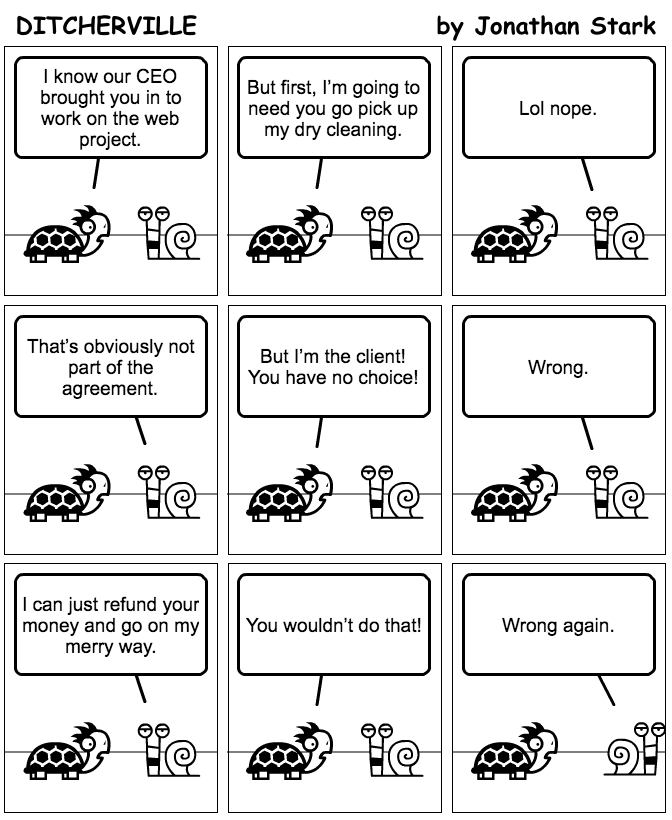Your boundaries
|
The first interactions with your clients are the ones that last. I mean, real interactions. After the honeymoon phase. The behaviors that you tolerate are the ones that get reinforced (aka building a culture). If they get always discounts, they assume discounting is the culture. If they get abusive, they assume they can go on with abuse. The good thing is that boundaries (setting them, and respect them) are on you. Keeping your boundaries doesn't need the other person for anything to do. It's you. And you have the power. You can always walk away.
|
Rod Aparicio
Get one tip, question, or belief-challenge that just might change the way you market, to help your customers buy. A *daily* email for b2b founders on improving your business —without the bullshit.
Runway: estimated time you could run your business in the scenario where you would have no income / revenue. Whatever runway you might have right now is fine. When you have this, it's a good time to raise your prices radically. Ditch the 1%, 5%, 10%, 15% raises. Double your prices. Now, it's not only about doubling the prices for the sake of it; but to think of what could you do for these new prices. And most importantly, how would these new prices better help your customers? The best time to...
When you see something ridiculous in a negotiation with your prospects, keep it to yourself. Not. When you find things that deserve to be dug deeper, keep it to yourself. Not. When you feel that what you do should be priced higher, but it may rise push back, keep it to yourself. Not. When you think your idea might be great, yet someone might steal it, keep it to yourself. Not. You can always speak up. You can always ask. You can. Whenever you think you can or you can't you're right.
Bad deals. You want them off of your way as soon as possible. That's why you need to set up criteria for you to work on the project / with the client. And if you choose to go with it, you do it knowing. So that when it's time (sooner rather than later), you churn. You're running a business. It's your responsibility to know and take action into the kind of clients you (want to) work with, while being profitable.
